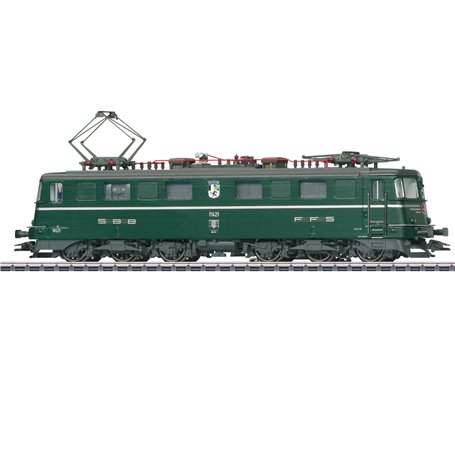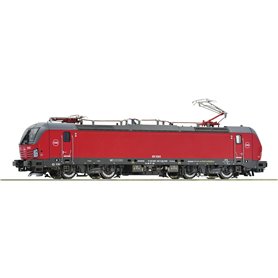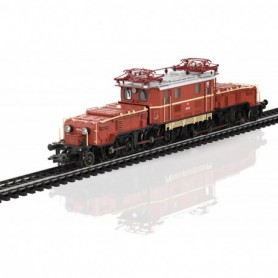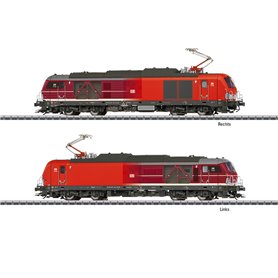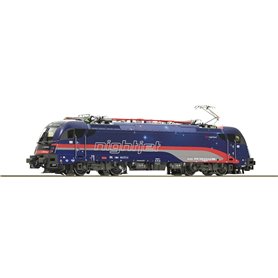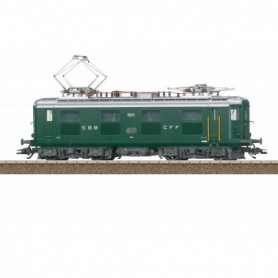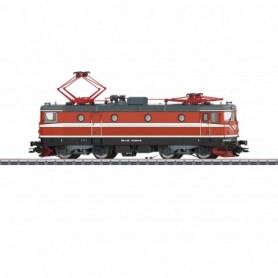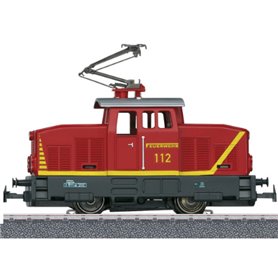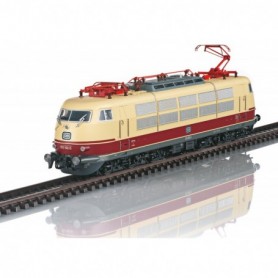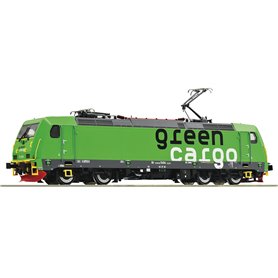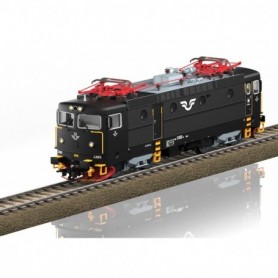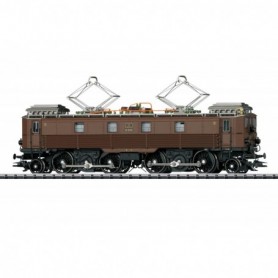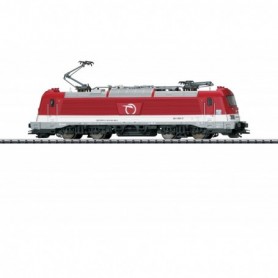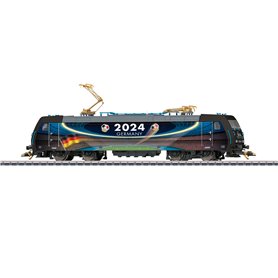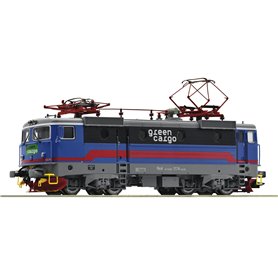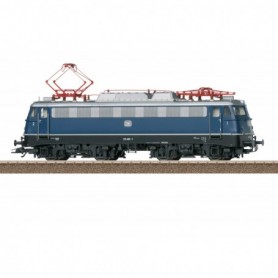Class Ae 6 6 Electric Locomotive
-
 Secure payment in our shop!
Secure payment in our shop!
Class Ae 6/6 Electric Locomotive
Model: The locomotive has an mfx+ digital decoder and extensive sound functions. It also has controlled high-efficiency propulsion with a flywheel, centrally mounted. Two axles in each truck powered. Traction tires. Triple headlights and a white marker light (Swiss headlight / marker light changeover) change over with the direction of travel, will work in conventional operation, and can be controlled digitally. Additional separately controlled light functions: switching to a red marker light, switching to two red marker lights, switching to a warning light, locomotive running authorization light, and switching movements light. The cab and engine room lights can be controlled separately in digital operation. Maintenance-free warm white and red LEDs are used for lighting. The locomotive has many separately applied details such as metal grab irons. It also has a close coupler mechanism. Length over the buffers 21 cm / 8-1/4".
Prototype: SBB Historic class Ae 6/6 electric locomotive as a museum locomotive. Cantonal coat-of-arms for Graubünden/Grischun. Road number 11421. Fir green basic paint scheme. The locomotive looks as it currently does in 2022.
At the end of the Forties, the Swiss Federal Railways (SBB) grappled again intensively with the problems of hauling trains on the Gotthard route. Extensive studies led to the realization that a new type of locomotive had to be designed with six driving axles, without pilot trucks, with a weight of about 120 metric tons, and a performance of 4,300 kilowatts / 5,764 horsepower for the constantly increasing trainloads. After almost three years of development and construction time, the two prototypes of the Ae 6/6 were ready and put into operation in the fall of 1952 and January of 1953. After overcoming several teething problems and above all installing wheelsets with side play as well as reducing the flanges on the center wheelsets of the trucks, the SBB initiated regular production of the locomotive in 1954. A total of 118 additional units were delivered between 1955 and 1966. It quickly turned out that a great success was at hand with road numbers Ae 6/6 11401-11520 and a "new Gotthard locomotive" was sparkling in the locomotive heavens. The only shortcoming on the Ae 6/6 was its trucks, which proved to be real "rail grinders" on certain routes and caused excessive wear on the track.The first 25 locomotives were often designated as canton locomotives, since they carried the coats-of-arms of the 25 Swiss cantons. There were decorative chrome strips on the sides and on the ends of the locomotive body. These decorations as well as the coats-of-arms on the side walls were very well received and made these powerful locomotives famous all over Europe. The rest of the 95 regular production locomotives were given the coats-of-arms for capital cities, important cities, and locations.In the Fifties and Sixties, the Ae 6/6 units simply worked as the Gotthard locomotives in passenger as well as in freight service. Real competition did not arise until the appearance in 1975 of the Re 6/6 with almost double the power. The former Gotthard stars now had to make do with lesser services and wandered to Central Switzerland and the Jura Region. Starting in the mid-Nineties, they were seen pulling only freight trains. A first great wave of retirements took the locomotives in 2009/2010 and the last scheduled use of these units ended in December of 2013. The Ae 6/6 locomotives were worn-out. Fifteen units are currently preserved, of which six units are owned by SBB Historic alone. Among them is the operational locomotive, road number Ae 6/6 11421 "Grischun/Graubünden" in its original fir green paint scheme.
This model can be found in a DC version in the Trix H0 assortment under item number 25666.
Prototypically improved shape of the ends.Centrally mounted motor and 4 axles powered for the first time.Cab and engine room lights can be controlled separately in digital operation.Numerous light functions that can be controlled separately in digital operation.Close coupler mechanism.
For the 175th anniversary of Swiss Railroading and the 70th anniversary of the class Ae 6/6
- Scale
- 1:87
- Country
- SBB/CFF/FFS
- Epoch
- VI
- Current
- AC
- Option
- Digital Sound

